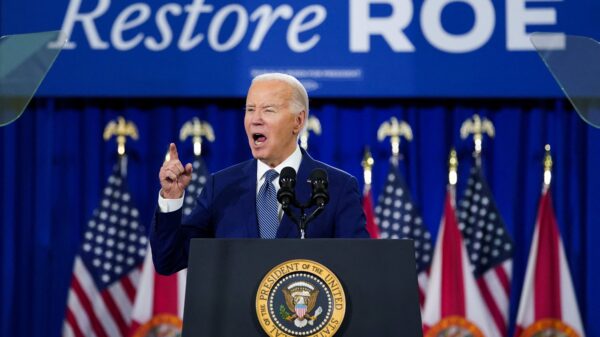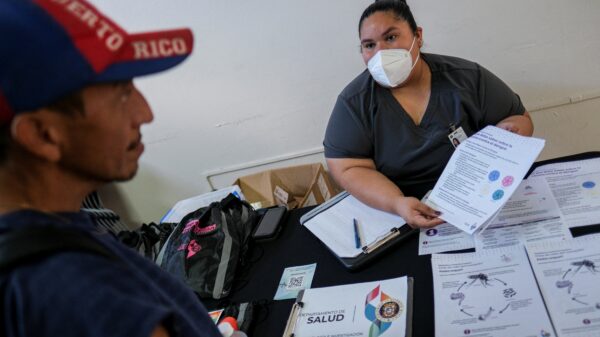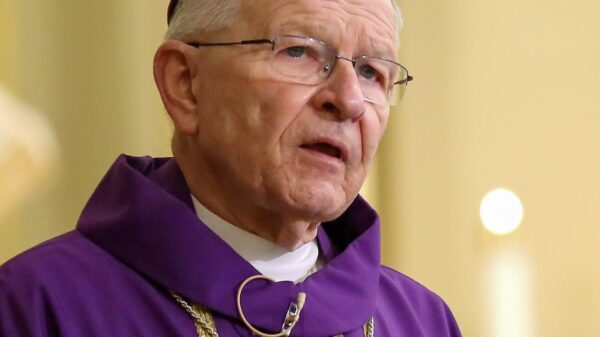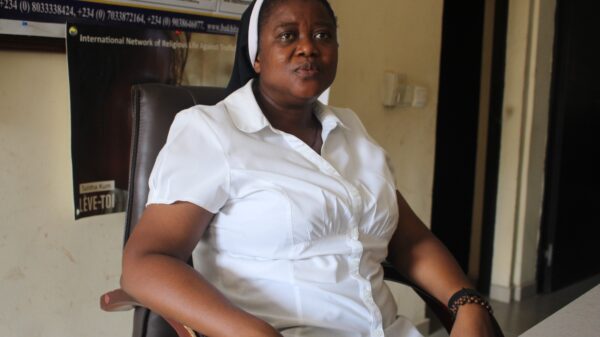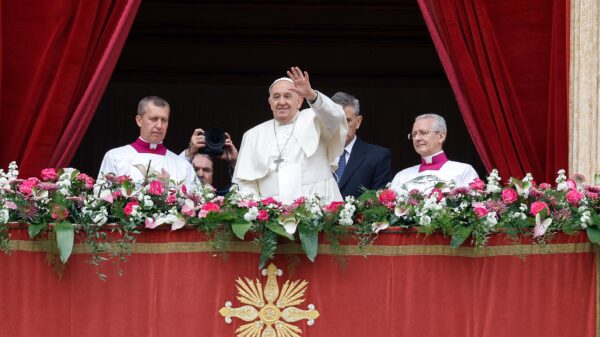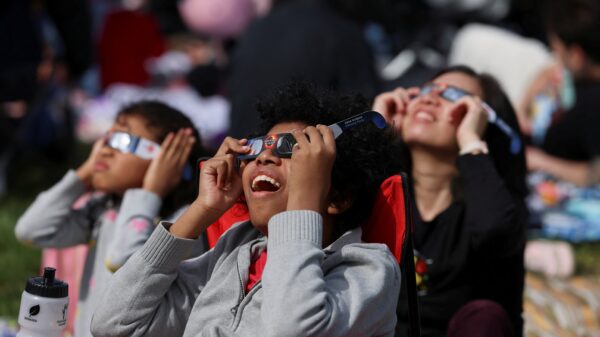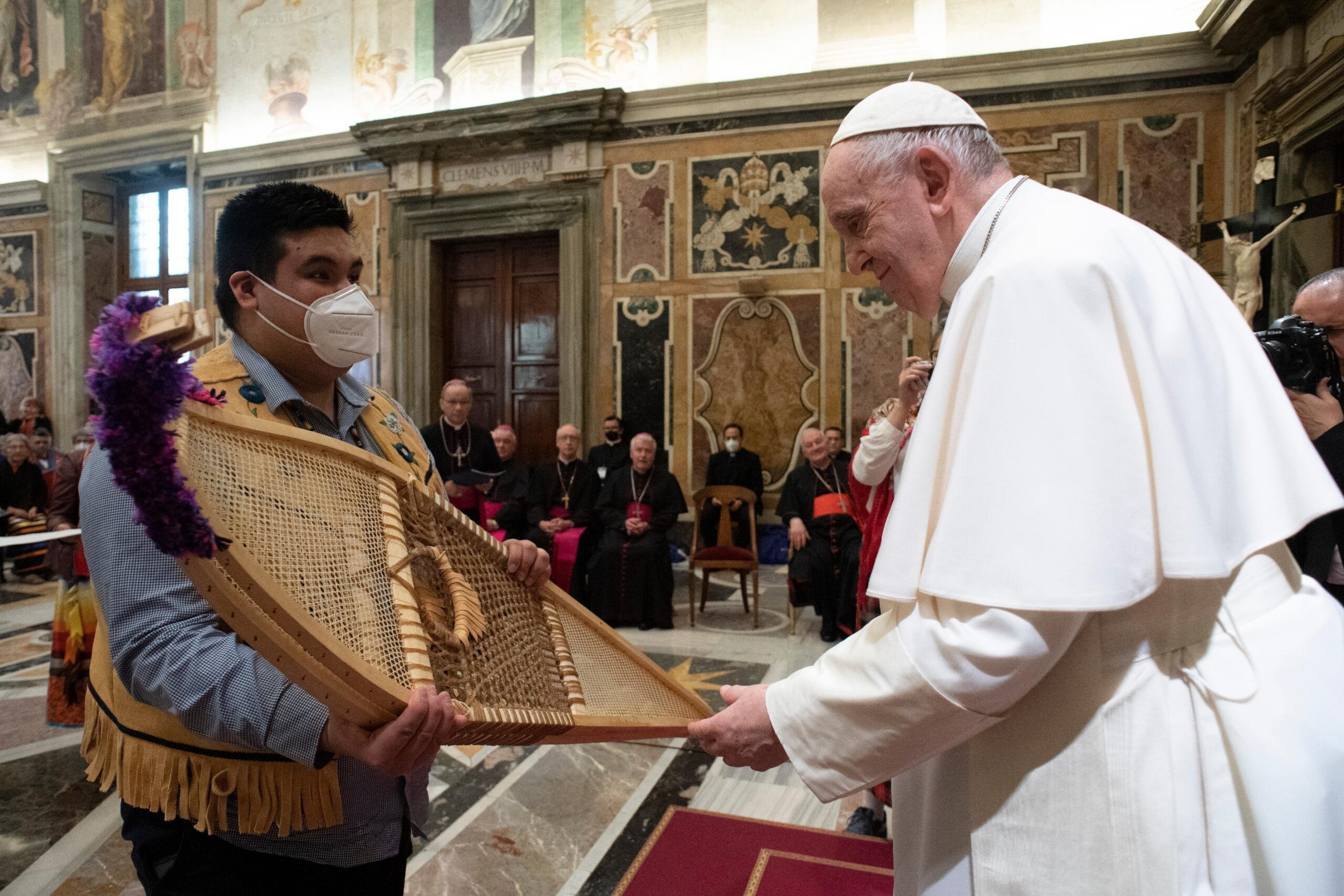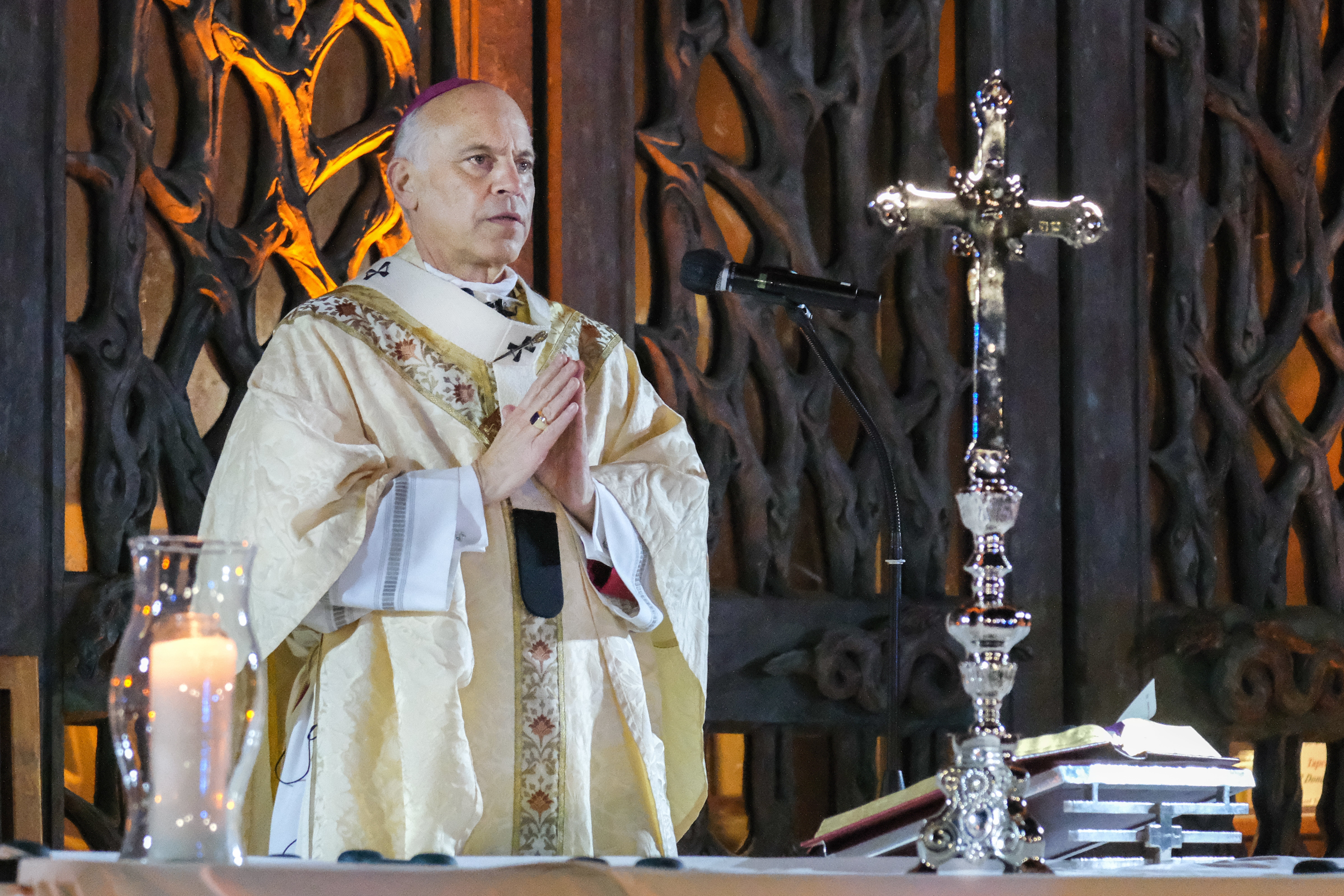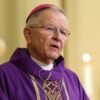By Gina Christian and Kate Scanlon
(OSV News) — Two bishops recently told OSV News they are working to ensure Indigenous Catholics have “a seat at the table” in the church, for a conversation led by the Holy Spirit.
Archbishop Paul G. Martin of Wellington, New Zealand, and Bishop Chad W. Zielinski of New Ulm, Minnesota, sat down with OSV News in late September amid meetings of the U.S. Conference of Catholic Bishops’ Subcommittee on Native American Affairs, of which Bishop Zielinski is chair.
The meetings brought together groups from Australia, New Zealand, the U.S. and Canada “to really talk about the experience of being Indigenous people in (those) countries, (and) what issues they are facing,” said Archbishop Martin.
According to the United Nations, there are more than 476 million Indigenous people representing over 5,000 groups in 90 countries, accounting for 6.2% of the world’s population. Most of the world’s estimated 7,000 languages are spoken by Indigenous people.
U.S. census data shows some 3.7 million people identified strictly as American Indian or Alaska Native as of 2022. By 2060, that population, along with those who also identify as Indigenous in combination with other racial groups, is projected to reach 10.1 million, or 2.5% of the total U.S. population.
The U.N. also notes Indigenous peoples across the globe continue to face a number of challenges, such as a lack of political representation and access to social services — as well as denials of their right to self-development according to their own cultural values.
The Catholic Church is working to change that, even as it reckons with its own legacy of involvement in colonialism, said Bishop Zielinski.
While the church is “serving Native communities … sadly, part of the history of the church is that (it) really did not at times stand up, and in the name of Christian justice, in the voice of Jesus Christ, stand up for these people who were really being mistreated,” he said.
In July 2022, Pope Francis embarked on a penitential pilgrimage to Canada, during which he apologized for the church’s role in that nation’s residential school system in the 19th and 20th centuries.
The schools were part of U.S. and Canadian government strategies to forcibly assimilate Indigenous peoples by separating children at an early age from their parents, families and communities — including those that had been Christian for some time — and depriving them of their languages, cultures and identities.
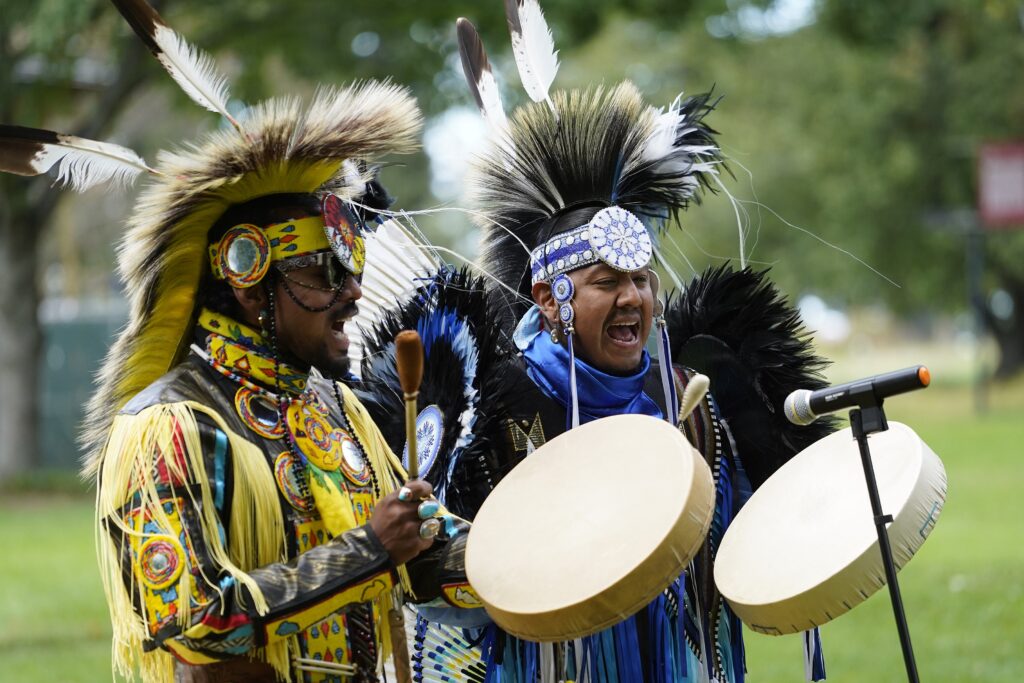
Both North American governments co-opted Catholic Church leaders into participating, with clergy and religious abandoning a previous model of missionaries integrating into Indigenous communities and providing education locally. The residential school system ended up severely damaging the familial and social fabric of Indigenous nations, and saw thousands of students physically, mentally and sexually abused.
Months after the pope in Canada condemned colonialism as incompatible with the Gospel, the Vatican publicly repudiated the “Doctrine of Discovery,” a political and legal theory based on 15th century papal bulls, which European and North American governments utilized to justify their colonization of Indigenous land and peoples.
“We have a great desire to work towards healing and reconciliation,” said Bishop Zielinski, noting that “sociological challenges, faith challenges, poverty (and) the influence of colonialism” have all had an “impact on the life of Indigenous people.”
One of the key topics that emerged during the USCCB’s Subcommittee on Native American Affairs meetings was “intergenerational trauma,” he said.
While Bishop Zielinski noted the “commonalities” among Indigenous communities, Archbishop Martin also stressed the uniqueness of Indigenous experiences in various areas.
In New Zealand, where the Maori have lived since at least the 14th century, “we didn’t have any history of reservations or residential schools,” said Archbishop Martin, making the historical relationship between the Maori and the church “somewhat different” from the Catholic Church’s other encounters with Indigenous people.
Among New Zealand’s population of some 5.2 million, Maori is increasingly spoken “throughout the country,” said Archbishop Martin. “There’s a real revival of the language … a renaissance and reclaiming of Maori language and Maori culture.”
As a result, “Catholic people in New Zealand are being exposed” to Maori culture, a process that is even “more intimate” due to the nation’s smaller population, Archbishop Martin said.
In nations such as the U.S., too often Indigenous peoples are “out of sight, out of mind” due to the reservation system and lack of cultural visibility in urban areas, said Bishop Zielinski, who highlighted the importance of ensuring Indigenous Catholics “have a presence” in dialogues and leadership, especially amid “the whole synodal process” of the universal church.
“Cultural catechesis,” especially in the U.S., “needs to be done on the local (and) diocesan levels,” said Bishop Zielinski.
“I would encourage bishops to find where your Native people are, and have them be part of the diocesan pastoral council,” he said.
Archbishop Martin said his nation’s six dioceses regularly meet with Maori representatives “to hear the voice of Maori Catholic people” by making sure they “have a seat at the table.
“We use a lot more Maori in the liturgy,” involving “particular things from the culture within the life of the liturgy, while still respecting the nature of the liturgy itself,” said the archbishop.
At the same time, the church also needs to have the ability “to critique culture and not to be mean,” said Archbishop Martin. “It’s really hard when you’re immersed in the culture, but (you also have) to be able to step out and say, ‘Actually, this is not a good part of our culture.'”
Bishop Zielinksi also recommended having parishes “do presentations” and other initiatives that “would facilitate a dialogue” on Indigenous concerns while “honoring and learning” about Indigenous culture.
Those cultures are too often in danger of being left behind as “younger people … embrace Western society,” he said. “Their influence is coming from everything they see (on) the internet, social media, Facebook and all that, and it has a huge Western influence which is quite different than their traditional ways of thinking.”
Bishop Zielinski said that the Catholic Church’s approach to Indigenous peoples should start with recalling “you’re a guest” in such cultures.
“How do you honor that?” he asked. “Once you enter into that with the right mind, then things start to happen.”
“We’re just beginning to learn the value of a listening, spiritual conversation,” said Archbishop Martin.
Bishop Zielinski said it is crucial for those “entering into this dialogue … (to) want to do the will of God.
“You’re there with an open heart and mind, and it is the Spirit who leads us. … We’re brothers and sisters in Jesus Christ,” he said.
Gina Christian is a national reporter for OSV News. Follow her on X (formerly Twitter) at @GinaJesseReina. Kate Scanlon is a national reporter for OSV News writing from Washington. Follow her on X at @kgscanlon. OSV News national news and features editor Peter Jesserer Smith contributed to this report. Follow him on X at @jesserersmith.


